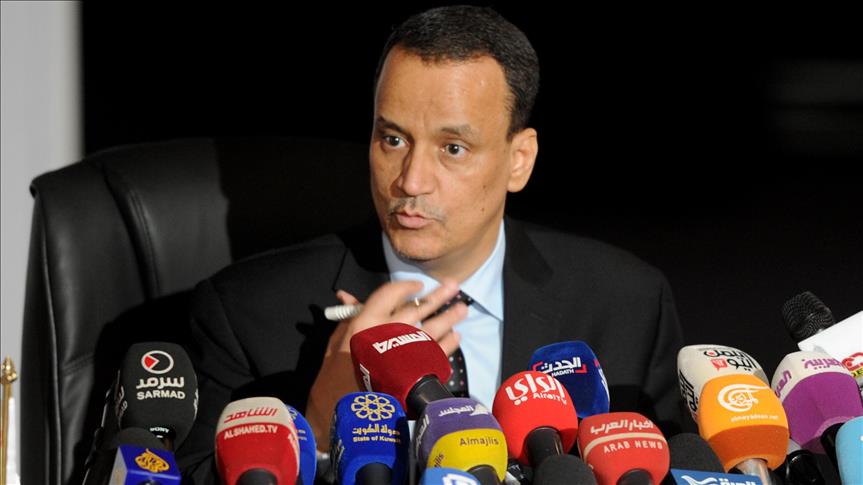UN envoy unveils details of Yemen peace plan
Roadmap suggests new vice-president, national unity government
 United Nations Special Envoy for Yemen, Ismail Ould Cheikh Ahmed
( Jaber Abdulkhaleg - Anadolu Agency )
United Nations Special Envoy for Yemen, Ismail Ould Cheikh Ahmed
( Jaber Abdulkhaleg - Anadolu Agency )
Sana
SANAA, Yemen
The UN Special Envoy for Yemen on Monday released details of a proposed “roadmap” to resolve the two-year conflict.
In a briefing by Ismail Ould Cheikh Ahmed before a UN Security Council meeting, the envoy said the peace plan envisaged a new vice-president for Yemen and a national unity government.
These would lead a transitional period before holding elections.
More than 6,900 people have been killed and another three million forced to leave their homes since the conflict erupted in late 2014. Houthi rebels and their allies overran the capital Sanaa and other parts of the country, forcing the Saudi-backed government to flee to Riyadh.
The conflict escalated in March when a Saudi-led air campaign sought to reverse Houthi gains.
“The roadmap includes establishing military and security committees to be able to oversee the delivery of weapons and the withdrawals from Sanaa, Hodeida and Taiz," Ould Cheikh Ahmed said.
“The military committees are supposed to ensure the end of military violence and to supervise the safety and security of citizens and the institutions of the Yemeni country," he added.
With regard to the political transition, the UN envoy indicated the roadmap addresses different transitional political measures, including the Yemeni presidency. He went on to note that these measures include "the appointment of a new vice-president, formation of a national unity government to lead the transitional period, overseeing the resumption of political dialogue and then holding the elections."
The UN envoy confirmed that “these measures are in line with 2216’s Security Council resolution and in line also with the initiative of the Gulf Cooperation Council and the outcomes of the national dialogue."
“I've been informed that there is a tendency among the Yemeni rivals to reject the roadmap, but this is an indication for the Yemeni political elite’s inability to overcome their differences and to put the public interest above anything else," he said.
Ould Cheikh Ahmed suggested "it is time for the Yemeni rivals to realize that no peace could be accomplished without concessions and no security could be attained without agreements".
In April, the government and the rebels entered UN-sponsored peace talks in Kuwait which failed to produce a breakthrough, ending in August. Last week, a three-day truce between the warring parties was not extended.
*Reporting by Zakaria Al Kamali; Writing by Ali H. M. Abo Rezeg








